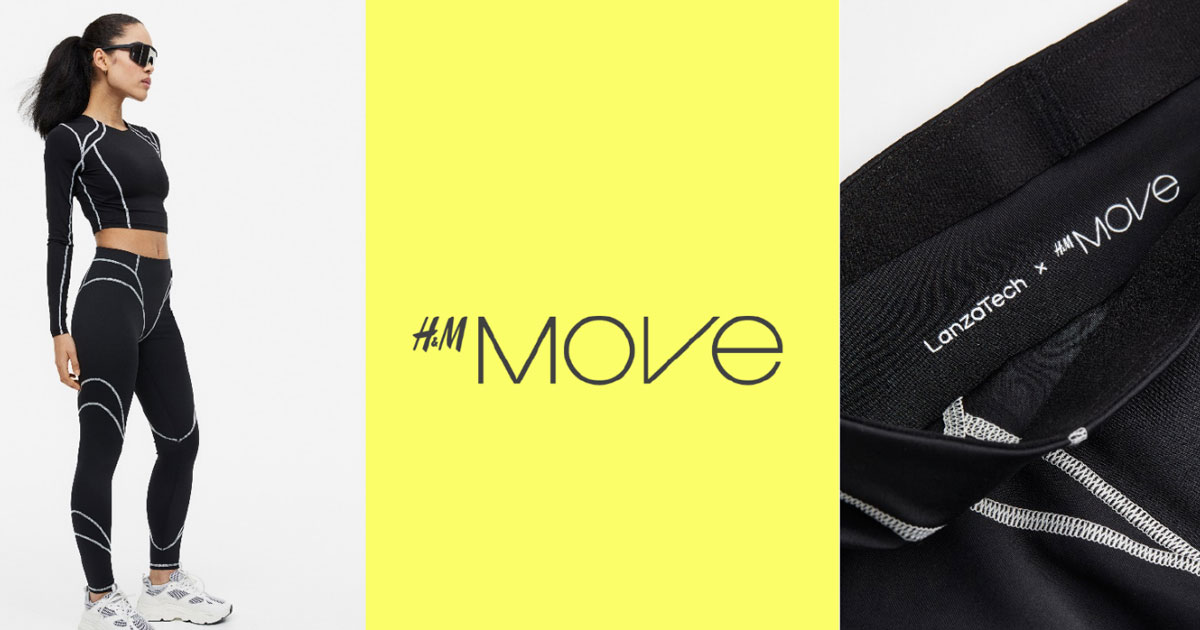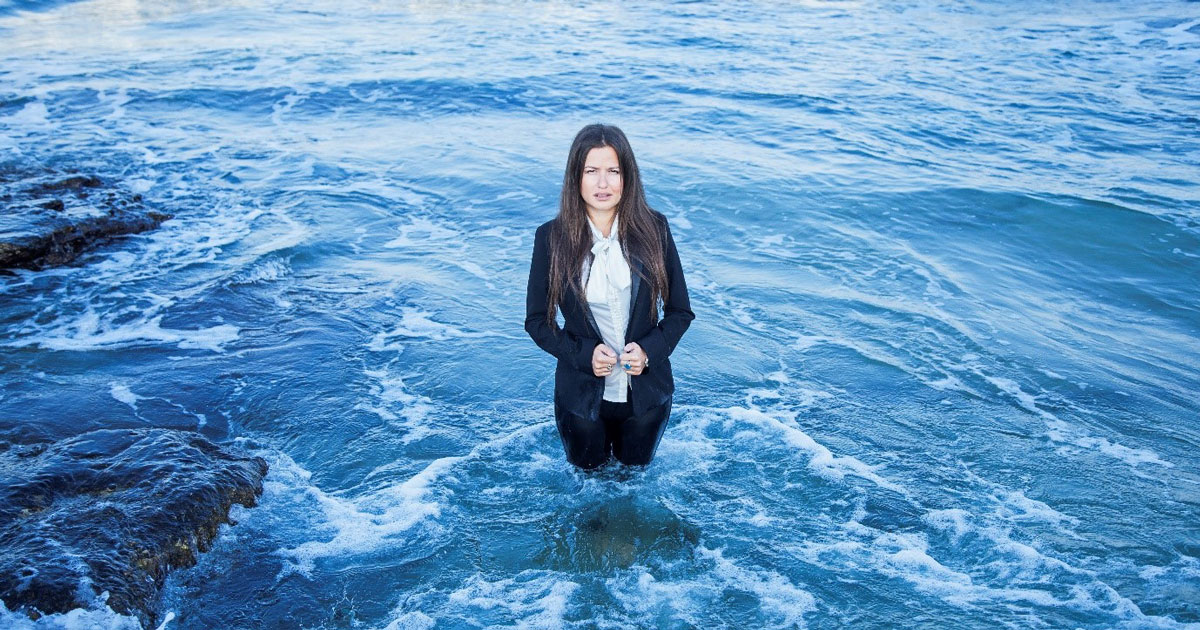By Katheryn Carrara, freelance writer
Kenyan entrepreneur Navalayo Osembo-Ombati gave up a job at the United Nations in New York to set up a business making running shoes in Kenya, fulfilling her dream of building on Kenya’s rich sporting heritage while creating livelihood opportunities for local communities.
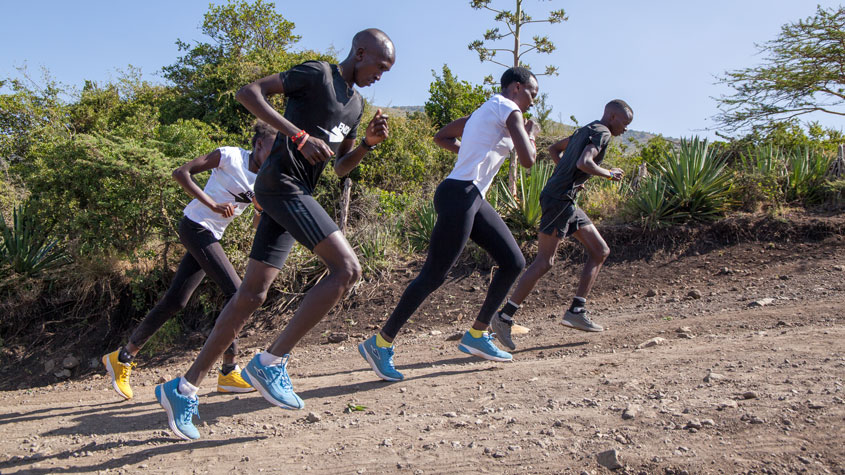
Tell us about Enda. What makes it different?
“Enda” means “Go!” in Swahili, the local language here in Kenya, which is also spoken widely in East Africa. We work with Kenyan athletes to design running shoes and sell them to runners around the world. Most running shoe companies are based in the United States or Europe. Enda is unique; it’s the only company of its kind in Africa. We are not simply testing or marketing technical running shoes made by others, we are actually making our own shoes.
Our debut product, a lightweight trainer called the Iten is available in green, red and black, the colors of the Kenyan flag. They have been designed in close collaboration with Kenyan athletes and sports professionals. The Iten is the ideal shoe for shorter and faster runs and is named after a little village on the western edge of Kenya’s Rift Valley where Kenyan marathon champions come from.
Our second product is a daily trainer called the Lapatet – which means “run” in Kalenjin, the language spoken by many of Kenya’s great runners – and is ideal for longer, slower runs. All our shoes are designed to support a mid-foot strike and maximize the runner’s natural metatarsal footprint, in line with the Kenyan running style.
Enda is unique; it’s the only company of its kind in Africa. We are not simply testing or marketing technical running shoes made by others, we are actually making our own shoes.
At present, most of our shoes are sold overseas as they are too expensive for the local market. About 90 percent of our sales are in the United States, 8 percent in Europe, where we still have supply chain challenges, and the rest in Kenya. We hope to launch a more affordable model here in Kenya soon.
Why did you choose to manufacture running shoes in Kenya?
I had a strong desire to return to Kenya after spending significant time studying and working abroad. I have always been interested in sports and wanted to do something that had a positive social impact and was scalable. I decided to focus on something that takes advantage of Kenya’s sporting culture. Running was the logical conclusion. I soon discovered that there is a big market for running shoes and that no one in Kenya had manufactured a running shoe before! That’s quite something given our running heritage. So, I decided to go for it.
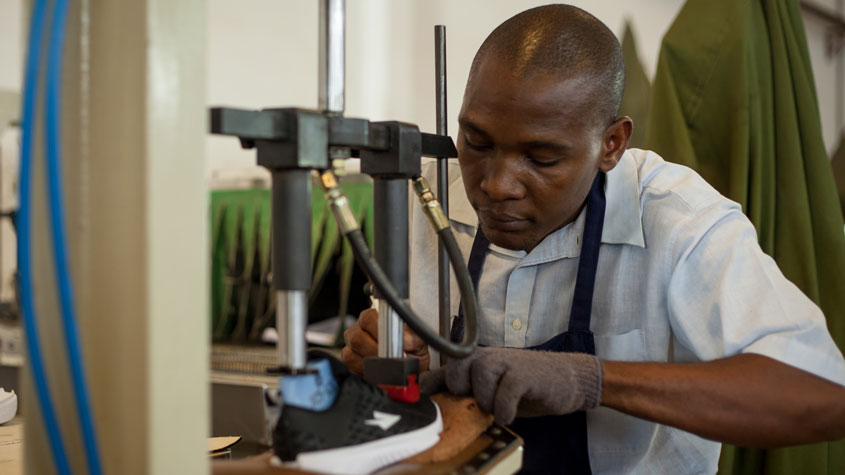
How are you leveraging the business for social good?
By making the shoes in Kenya we’re supporting local communities. Manufacturing is one of the best ways to get people out of poverty. By making our shoes here, we are not only supporting those who work with us to make them, we are also supporting various subsectors that supply us with raw materials. It would have been much easier to outsource all of the manufacturing processes to China, but we made a conscious decision to build up our manufacturing capability in Kenya.
The idea is that, progressively, our shoes will be 100 percent Kenyan-made. Right now, we’re at around 52 percent. My aim is to create an enterprise that not only supports top athletes, but also generates opportunities and benefits for the broader community. That’s why we donate 2 percent of our revenue to community projects.
Through the evolving work of the Enda Foundation, we are currently supporting a project in the slums, which protects people at risk, and a community center for children with autism. We see these community projects as an integral part of the business. Enda is a certified B-Corporation and a certified Climate Neutral company. Certified B-Corporations are businesses that meet the highest standards of verified social and environmental performance, public transparency and legal accountability to balance profit and purpose. And as a Climate Neutral company, we measure and offset our carbon footprint.
Where do you source the basic materials to make your shoes?
Not all the basic materials we need are readily available here in Kenya. We currently import some parts from China and supplement those with materials that are available locally as we progressively build the local supply chain. That said, we still lack expertise, for example, in mixing and handling the chemicals used, which can be dangerous. But we are making good progress. We have already increased local production, thanks to a local factory that has invested in the machinery for part of the manufacturing process, and a team from a partner in China that comes to Kenya to train the staff. Our aim is to train and improve the skills of our staff so we can produce a high-quality product using a range of materials.
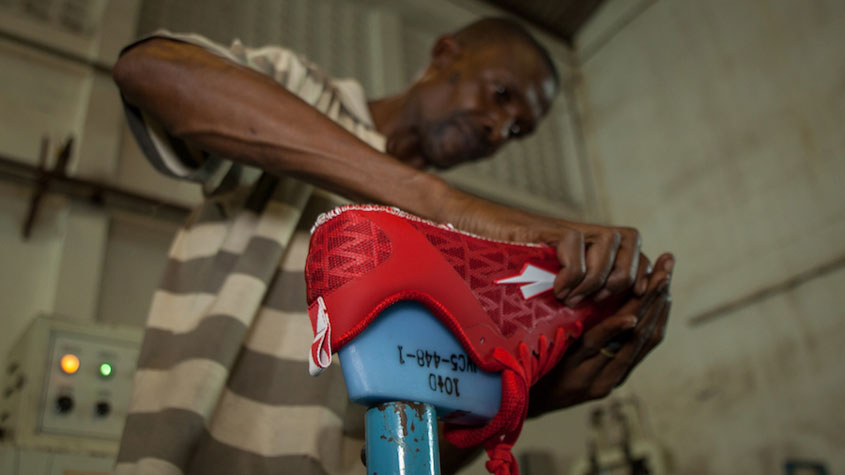
What key challenges are you facing?
A key challenge is the need to ensure consumers are educated and can tell the difference between what’s a gimmick and what’s not. The running shoe industry is full of hype about products and claims that a shoe with a new, cool feature will make you run faster. This is not true. Without proper training, nutrition, running form and consistency, nothing will make you a better runner. That is the ethos of Kenyan running culture that we are trying to share with runners around the world.
Another challenge was the reluctance of local manufacturers to bet on Enda. Securing investors has been a huge challenge. Only in late 2019, when we secured our first seed funding, were we able to persuade local investors to back us.
In our first year of operation, thanks to angel funding, we developed our first prototype. Then we had to get creative and decided to launch a Kickstarter crowd-funding campaign. That enabled us to launch our first shoe, the Iten, in 2017.
A second campaign in 2019 made it possible to create and launch our long-distance Lapatet model, which went on to win first prize in the Body and Mind category at ISPO, the world’s leading trade fair for the sporting goods industry, in Munich, Germany, the same year. We were the first African company to win such a prize. That really boosted our profile and enabled us to attract five new investors, which will make a huge difference to our production, distribution and marketing capacity.
The whole idea of moving the manufacturing process from China to Kenya and training everyone is challenging, but we have chosen this as our path. In the end, we believe it will create jobs, attract investment and help build Kenya’s reputation as a manufacturing hub for sports shoes.
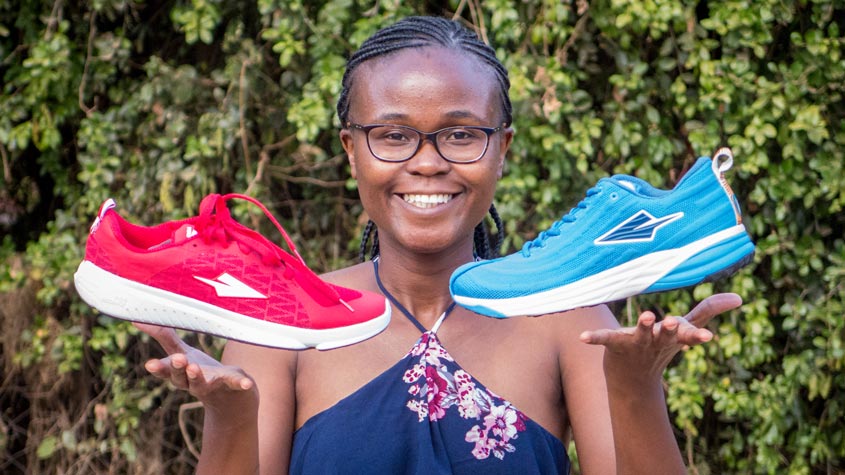
And as a small Kenyan enterprise?
From experience, it is much easier for a foreign direct investor than it is for a local company to operate in Kenya. Many government incentives are geared towards making foreign direct investment work. For example, a foreign manufacturer set up in the export processing zone (EPZ) is exempt from valued-added tax (VAT), import duty and other taxes for a specified period of time and also has ready access to offices and factories. But for a local company like Enda that is looking to the export market, it’s far more challenging.
My aim is to create an enterprise that not only supports top athletes, but also generates opportunities and benefits for the broader community.
As a contract manufacturer we don’t qualify for support because even though we do everything a foreign export-oriented manufacturer would do in Kenya, we don’t have a physical factory nor do we intend to build one. This detail is important because under Kenya’s EPZ law, to benefit from tax incentives, you must have a physical factory. This creates two problems. First, it means that only those people with enough money to build or lease a factory can benefit from the incentives. When you consider Kenya’s demography and economy, it means that young people like me will hardly ever get into export manufacturing. Second, it creates a cashflow problem with regard to working capital. When we import, we pay VAT, which is zero-rated for exports. Because most of our sales are exports, the government always owes us refunds, meaning that a good chunk of our day-to-day capital is tied up in VAT payments, which we wouldn’t have to pay if we were in a special economic export zone.
If I don’t need to own a car to move from one location to another, or to own a luxury beach house to enjoy a holiday in one, then I certainly don’t need to own a factory to be deemed a manufacturer. The regulatory and legal environments really need to reflect the realities of today’s shared economy and support local businesses.
And is being a female entrepreneur challenging?
It depends. It’s true, I am usually the youngest and the only female in most rooms and there is definitely a great absence of women in manufacturing and in decision-making roles. This points to various structural issues. But that hasn’t held me back. In general, my difference has always been an opportunity for me to express my ideas, explain my business and discuss the challenges I face. Being a woman can be difficult, but it can also be an opportunity.

What role does intellectual property play in your business?
Intellectual property (IP) is king. Without IP rights, we would have no legal means of defending ourselves against copycats or other unscrupulous operators. IP rights enable us to protect Enda’s business interests and grow the company, ensuring that when people buy our shoes, they get an authentic, high-quality product.
In the running-shoe world, everyone is trying to revolutionize running, so there is a lot of IP. We have registered trademarks and design patents, and we are developing more of these assets. IP rights are particularly important for Enda because we are a young company with global ambitions. It’s of paramount importance that we secure our IP so we can build our commercial reputation and client base. We have to be proactive about this in today’s fiercely competitive global market.
We want [Enda] to become a global brand with a global impact, and we want to move the entire production process to Kenya and make it environmentally sustainable.
IP for us is precautionary – an insurance policy if you like. It enables us to protect the beautiful things we make and expand our business. You never know what the future holds.
Is IP critical for small businesses?
Yes, it certainly is, but in Kenya, unfortunately, some small businesses often think IP is exclusively for big businesses. The fact is, IP is for everyone. In Kenya there’s a misconception that IP is expensive. It’s true, one doesn’t always see an immediate benefit when paying for an IP right, but in the long-run it is extremely important, both in protecting your business interests and creating commercial opportunities. Look at innovations like Mpesa, the banking app that grew up in Kenya and has become an international phenomenon. IP is critical in protecting it. While creators in Kenya are generally quite IP-aware and understand how it can serve their interests, more needs to be done to ensure that they are more proactive about IP.
What could be done to increase awareness of IP in Kenya?
I would like to see better access to accurate IP information. A more user-friendly process for acquiring IP rights would also be welcome. The process is cumbersome and sometimes difficult for non-specialists to navigate. I was well informed, but it still took an insane amount of time. That in itself makes the whole process more expensive, especially if you aren’t based in Nairobi. Access to basic legal assistance, practical training courses for entrepreneurs, or at the very least, access to clear and up-to-date general guidelines on how to complete different applications would be very helpful.
IP rights enable us to protect Enda’s business interests and grow the company, ensuring that when people buy our shoes, they get an authentic, high-quality product.
What are Enda’s plans for the future?
In January 2020, we launched our first daily distance trainer and are preparing to launch a trail shoe in early 2021. We also plan to revamp our short-distance shoe with new materials and technical features and will be launching an affordable shoe made 100 percent from local materials for the Kenyan market. Last year, we recorded good results in the US market and our focus in 2020 is on developing our presence in Europe.
What are your ambitions for the company?
Our long-term vision is to be among the top three global sports brands in the world. The more shoes we make, the more people we employ and the more revenue goes back into the community. We want to become a global brand with a global impact, and we want to move the entire production process to Kenya and make it environmentally sustainable. My dream is to make our operation 100 percent circular, so that people wear our shoes, then send them back to us to tear apart and make new ones. Complete recyclability would be awesome!
What advice do you have for aspiring young entrepreneurs?
Life is an adventure. You have one life and it’s your responsibility to find your reason for being alive. You won’t find it sitting in a corner. Try to resist the expectations of others and the fear of failure.
That takes courage.
Yes, it takes courage and luck. If I hadn’t had my job at the United Nations in New York, to be honest, I wouldn’t have been able to do this. I wouldn’t have been able to grow the business for a long time while just living from my savings. Even when you are experimenting you need to pay your bills and meet other obligations and it was important to me to give the business time to grow without saddling it with too many expenses in its formative years. I recognize how lucky I am to have been able to pursue this journey and I am always grateful for that – as well as the opportunity to establish Kenya’s and Africa’s first running shoe brand!

